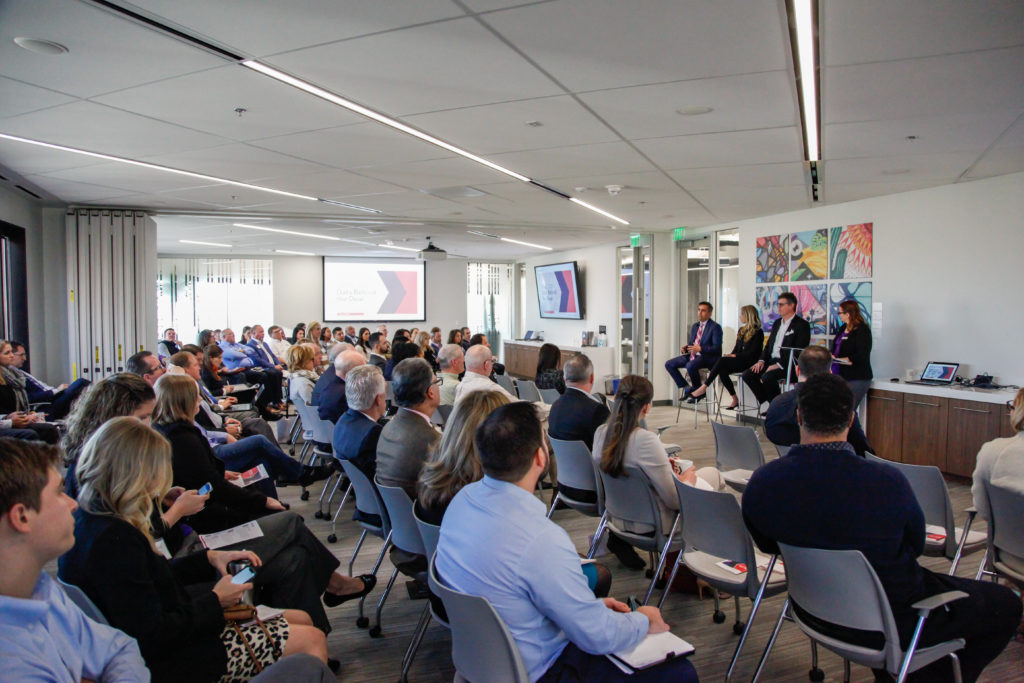

The data behind the deal
Published: 01/23/2020
Updated: 02/13/2020
An educational panel on how Greater Phoenix data drives business decisions
Over the past 30 years, the Greater Phoenix Economic Council (GPEC) has advanced the region by assisting in the relocation and expansion of more than 800 companies, in turn creating more than 144,000 jobs and $16.1 billion in capital investment. In becoming the fastest-growing U.S. metropolitan area, GPEC, city municipalities and regional partners have aggregated and analyzed countless data points to showcase why Greater Phoenix is the best place for businesses to build and grow.
At the recent GPEC Ambassador panel, industry experts discussed the data behind the deal, highlighting how market research drives expansion plans and has a direct impact on our regional economic development. Panelists included Megan Creecy-Herman, vice president, investment officer for Prologis; Tony Lydon, national director, industrial and supply chain for JLL; and Elan Vallender, senior economic development specialist for the City of Apache Junction. The panel was moderated by Kristen Stephenson, GPEC’s vice president of research and analytics, in collaboration with Mitchel Allen, senior vice president of business development, with more than 70 attendees in the audience.
How do we drive regional development and business expansion decisions through data?
Panelists highlighted three key points:
- Leverage your data in business attraction efforts
Elan Vallender, senior economic development specialist for the City of Apache Junction, shared that Apache Junction looks at specific data points to better position the community for economic development. For example, they look at data on their city’s workforce, age groups, regional college institutions and land that would realistically suit incoming companies, and then leverage those data points when positioning their city to potential businesses. Companies looking to relocate or expand also use this data to make decisions that result in development.
- Tell the regional story
The panelists agreed that the best way to show people the importance of market data is to tell the Greater Phoenix story. “We really want to brand the reality that our market is very diverse, deep and capable to accommodate and help these companies grow,” says Tony Lydon, national director, industrial and supply chain for JLL. Additionally, if the data doesn’t exist yet, Megan Creecy-Herman, vice president, investment officer for Prologis, says to “tell the story qualitatively if you can’t tell it quantitatively.” Creecy-Herman also emphasized the importance of presenting the region’s story from a macroeconomics perspective, with the help of economic development organizations like GPEC.
- Utilize economic development data resources
Economic development organizations and municipalities look at countless data points to determine where a company will fit best within the region. Some of the top data points that the panelists say they track included employment and labor market information, population and housing growth, as well as assessing how propositions in the Arizona State Legislature’s pipeline may affect regional economic development.
Are you interested in staying up-to-date on Greater Phoenix’s growth and advocating for the region’s competitiveness? Become an Ambassador – learn more.
